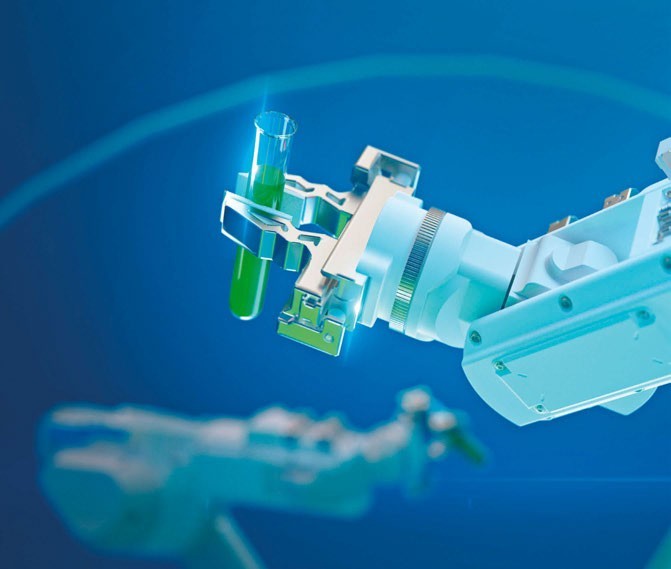Digital: AI and Biotechnology
Using AI to accelerate biotech product development
As it grows more sophisticated, artificial intelligence will have transformative implications across virtually every industry on earth. One area in which this impact is already being felt is biotechnology, where it is playing a prominent role in everything from drug and vaccine development to providing global food security
Eduardo Abeliuk at TeselaGen Biotech
The arrival of artificial intelligence (AI) has launched a technological revolution on a scale not seen since the advent of the internet. At this very moment, researchers and scientists all over the world are harnessing this incredibly powerful technology in ways that will help humans live longer, healthier lives, all while enabling a circular economy.
Taking the guesswork out of drug and vaccine development
The human body and its systems are incredibly complex. That complexity, as well as subtle variations in each patient’s biochemistry, is a big part of what makes processes like drug discovery so expensive and time-consuming. However, AI, with its ability to rapidly identify patterns and extract data even from unfathomably large data sets, is poised to shift that historic paradigm. Everything from human health to rewriting the human immune system and eradicating deadly diseases can be given a significant boost through AI. For pharmaceutical companies, this means a rapid formulation of new drugs to combat chronic health conditions and battle diseases. AI drastically reduces not only their research and development costs, but accelerates the time to market for life-saving drugs and other therapies.
Historically, bioproduct development has relied mostly on trial-and-error and manual human tasks, which are inherently error-prone. AI’s ability to rapidly analyse clinical data facilitates identifying biomarkers for disease diagnosis, prognosis and treatment response. This allows treatments to be created that rely less on guesswork and are instead highly tailored for individual patient needs.
Developing a new drug traditionally takes over a decade and costs hundreds of millions, if not billions, of dollars. AI enables drug makers to develop predictive models based on biological data, with which they can forecast the behaviour and characteristics of new products before they go to market. This helps developers make proactive adjustments and refinements throughout the development process, which can greatly reduce the complexity and risks of bioproduct development. AI is also able to identify potential new drug candidates from the vast number of chemicals that pharmaceutical companies work with. This helps better predict drug-target interactions and toxicity profiles, greatly streamlining the drug development pipeline.
To be clear, leveraging AI in the development of bioproducts isn’t some far-flung notion set to happen sometime in the future. It’s happening right now. The US Food and Drug Administration (FDA) even released a discussion paper in May of this year entitled Using Artificial Intelligence & Machine Learning in the Development of Drug & Biological Products to explore and better understand its potential. 1
Morgan Stanley believes AI-enabled drug development platforms could be transformative both for medical providers and patients suffering from difficult to treat diseases or chronic conditions.2 According to its research, using AI and machine learning (ML) to achieve even incremental improvements in early-stage drug development success rates could be a more than $50bn opportunity, with 50 novel therapies discovered over a ten-year period.
An operating system for biotechnology
Creating safer and better drugs faster is just the tip of the iceberg when it comes to AI’s potential in the biotechnology space. AI already works with leading pharma, industrial biotech and agri-food tech companies ML-powered operating systems to help fast track the development of high-value chemicals, agricultural products and therapeutics. Combining AI analytics with a powerful operating system can allow biologists, lab technicians and bioinformaticians to more effectively collaborate, design and build experiments, organise data and continually test and learn. This approach, coupled with advanced modelling, has swung open the door for a radical transformation of biology and biochemistry, enabling the rapid expansion of potential applications. AI helps facilitate this multidisciplinary collaboration among biotechnologists.

The result? More accurate diagnostic techniques, more effective treatments developed more quickly and improved patient outcomes. This is particularly useful when it comes to designing effective vaccines against rapidly evolving pathogens, as we saw during the COVID-19 pandemic. AI is able to predict molecular structures and interactions for improved human immune responses, enabling vaccines to be adapted to address emerging variants.
References
1. Visit: fda.gov/media/167973/download
2. Visit: morganstanley.com/ideas/ai-drug-discovery

Dr Eduardo Abeliuk is a US based entrepreneur and technologist with over 20 years of experience driving technology development and innovation at various high-tech companies in the US. He is currently the chairman and CEO at TeselaGen Biotech, a Silicon Valley-based company that works at the interface between biotechnology, artificial intelligence and enterprise software. Eduardo holds a double Bachelor’s degree in physics and electrical engineering from the University of Chile, Chile, an MS in bioengineering and a PhD in electrical engineering from Stanford University, US. His academic work has been published by prestigious journals and he holds multiple US patents on computational biology and AI.